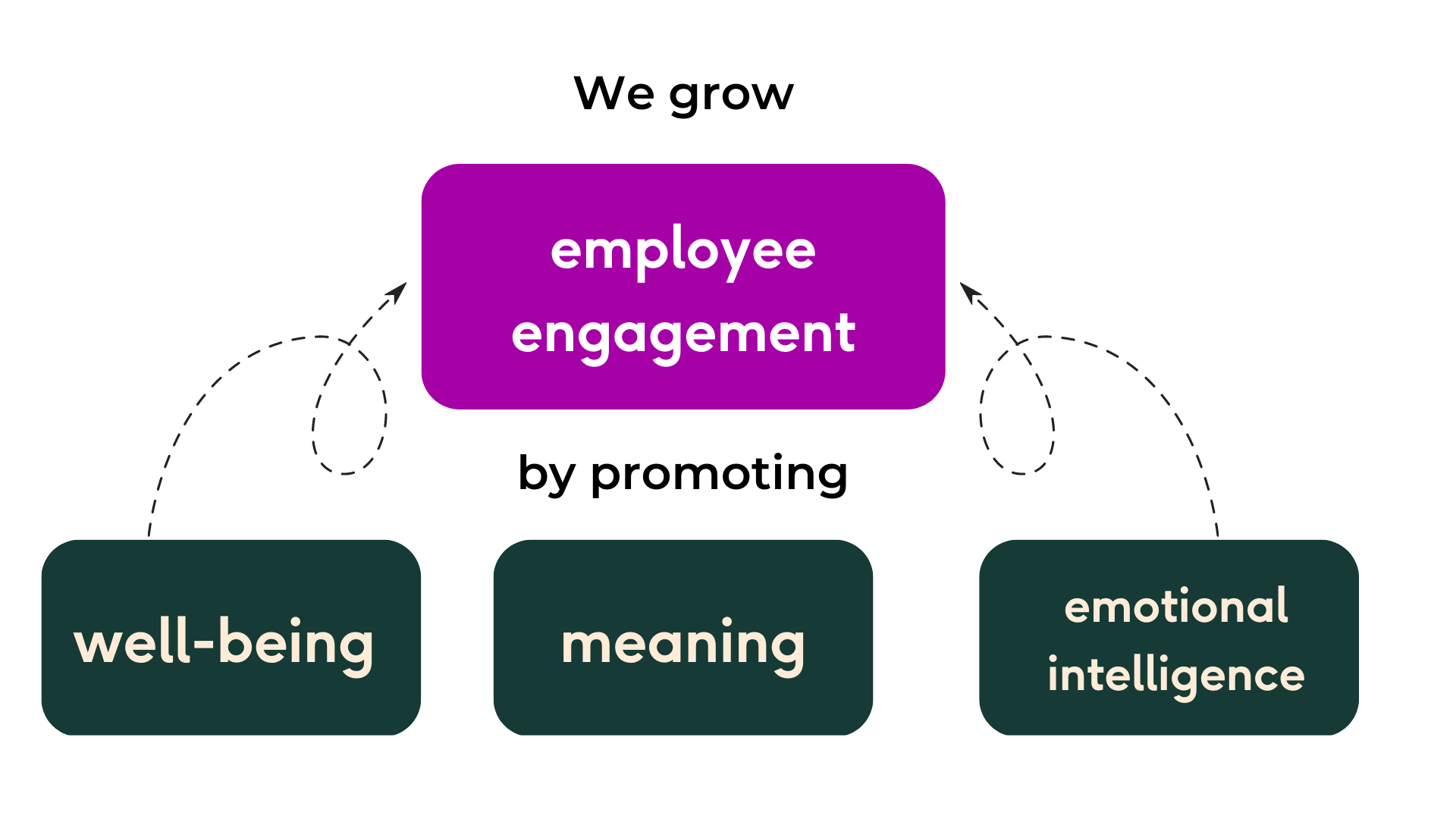How can emotional intelligence training impact key business metrics?
business results powered by emotional intelligence
In a demanding, uncertain climate, you need your teams to be productive, agile, and engaged.
.png)
After attending our Search Inside Yourself program....
70%
of participants report that they are able to notice when their attention had wandered, and return it to the present.
vs. 48% pre-program
82%
of participants report that they are able to prioritize what's most important most days.
vs. 48% pre-program
67%
of participants were not habitually checking their phone or email without a clear purpose.
v. 53% pre-program
See our Impact Report

After attending our Seach Inside Yourself Program...
72%
of participants report that they are able to find workable solutions to difficult problems.
v. 59% pre-program
68%
of participants report that when in conflict with someone, they take time to fully understand what is driving their perspective.
v. 50% pre-program
67%
of participants report that they are able to let go of negative thoughts once they become aware of them.
v. 48% pre-program
See our Impact Report

After attending our Seach Inside Yourself Program...
69%
of participants report that they use a deliberate technique to calm themselves down when in the middle of a stressful situation.
v. 44% pre-program
69%
of participants report that when faced with a difficult situation, they are able to see the potential opportunities.
v. 55% pre-program
71%
of participants report being able to pause before reacting.
v. 51% pre-program
See our Impact Report
Our programs enable business transformations.
Is your business looking to work in an agile way? Harvard Business Review notes that "agile does not work without psychological safety."
They go on to explain: "Agile processes and tools provide support, but the central weight-bearing mechanism of the agile approach is not the scrum or the sprint. Rather, it’s the team’s dialogic process — the way team members interact — that ultimately determines success."
"Miscommunication costs companies $37 billion (or $26K per employee) in the US and UK every year."
(Mitchell Communications Group as reported to Salesforce, 2014)
You already know that employee engagement is key to productivity, profitability, innovation, and the good communication that enables it all.

and yet employee engagement is essential to business success because engaged employees are more productive, motivated, and committed to achieving their organization's goals.

and there are endless challenges that get in the way...

Economic, political, and social volatility

Employee turnover and absenteeism

Uncertain macroeconomic environment

Change--both planned and unplanned

in this climate, choosing "business as usual" has a high cost...

Voluntary turnover costs US businesses $1 Trillion

Disengagement costs 34% of an employee's annual salary

The annual healthcare spending due to workplace burnout is anywhere from $125 billion to $190 billion.

A survey of 400 companies with 100,000 employees each cited an average loss per company of $62.4 million per year because of inadequate communication to and between employees

But, there is hope!
By humanizing work through emotional intelligence, companies can improve employee engagement, increase productivity, and build connected teams leading to a more positive work environment, while increasing profitability and shareholder value.
Improve Employee Engagement
By promoting well-being, meaning, and emotional intelligence
Engaged employees show...
81%
lower absenteeism
24%
increase in profitability
10%
increase in customer loyalty & engagement
43%
decrease in employee turnover
Improve Productivity
By driving resilience, focus, and motivation
When workers are motivated by meaningful work, the resulting gains in worker productivity add up to over $9,000 per worker, per year.
Build Connected Teams
By fostering a sense of psychological safety, belonging, and effective collaboration
In a study of the Royal Navy, researchers found that emotional intelligence (EQ) makes a greater overall contribution to leadership performance than does IQ.
(Dulewicz et al., 2005)

